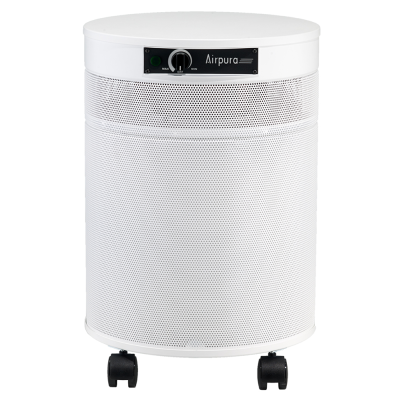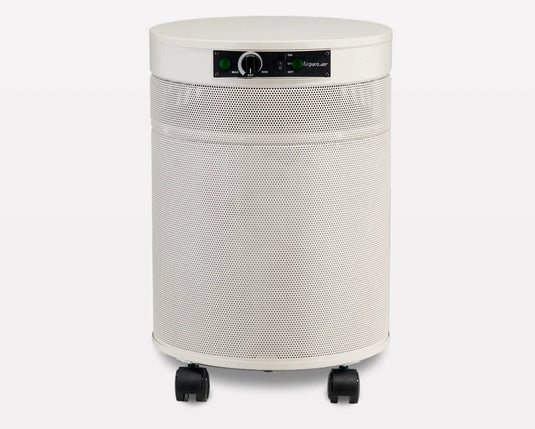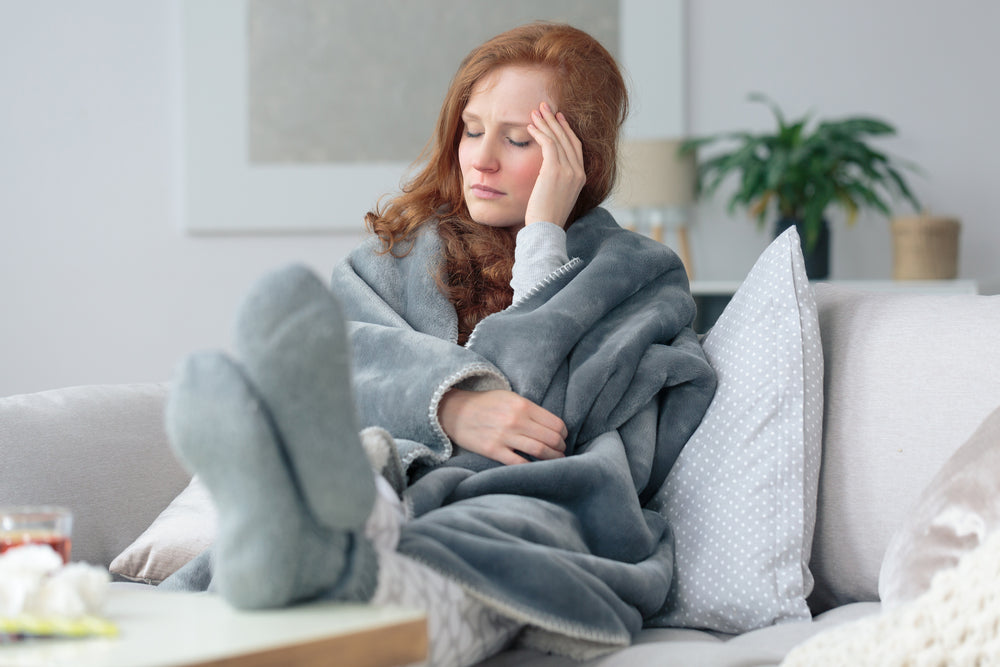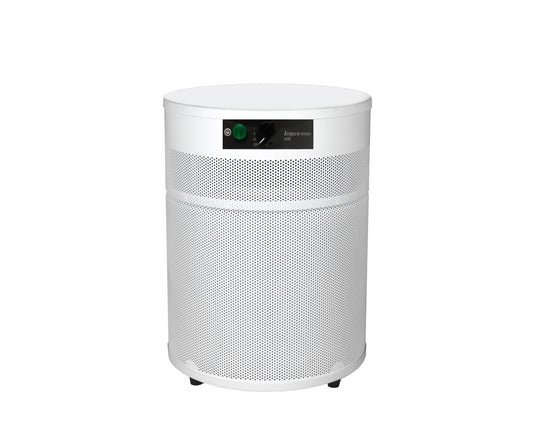Air purifiers are essential for maintaining clean indoor air. But, not all air purifiers are the same.
Comparing air purifiers for chemical sensitivities and general use can help you make an informed choice. Understanding the differences between these two types is crucial. If you have chemical sensitivities, you need a purifier that targets specific pollutants. On the other hand, general-use air purifiers are designed for everyday air quality concerns.
This comparison will guide you through the key distinctions, helping you decide which purifier suits your needs best. Whether you aim to reduce allergens, odors, or chemical pollutants, knowing what each type offers is the first step towards healthier air at home. Let’s explore the unique features and benefits of each type.

Credit: www.natlallergy.com
Introduction To Air Purifiers
Air purifiers are devices that clean the air in your home. They remove contaminants and improve air quality. Different purifiers serve different needs. Some people need purifiers for chemical sensitivities. Others use them for general purposes. Understanding the right type can help you choose the best purifier for your needs.
Purpose And Benefits
Air purifiers for chemical sensitivities remove harmful chemicals from the air. These chemicals can cause health problems. Purifiers help reduce symptoms like headaches and allergies.
General use air purifiers target common pollutants. These include dust, pollen, and pet dander. They help improve overall air quality. Both types of purifiers offer health benefits. They create a cleaner, safer environment.
Types Of Air Purifiers
| Type | Description | Best For |
|---|---|---|
| HEPA Filters | High-Efficiency Particulate Air filters trap small particles. | General use and chemical sensitivities |
| Activated Carbon Filters | These filters absorb odors and gases. | Chemical sensitivities |
| UV Air Purifiers | Use UV light to kill bacteria and viruses. | General use |
| Ionic Air Purifiers | Release negative ions to attract pollutants. | General use |
Choosing the right air purifier depends on your needs. Consider what pollutants you want to remove. This will help you find the best device for your home.
Chemical Sensitivities Explained
Chemical sensitivities affect many people. These sensitivities can disrupt daily life. Some people react to tiny amounts of chemicals. They might get headaches or feel dizzy. Air purifiers can help. But, not all air purifiers are the same. Some are made for general use. Others are designed for people with chemical sensitivities.
What Are Chemical Sensitivities?
Chemical sensitivities, also known as Multiple Chemical Sensitivity (MCS), involve reactions to chemicals in the environment. These chemicals can be in the air, food, or products. People with MCS have a heightened response. Even low levels of chemicals can cause problems. Symptoms can range from mild to severe.
Reactions might include headaches, fatigue, or nausea. Some people may also experience skin rashes or breathing issues. The exact cause of MCS is not clear. But, it is believed to involve the immune system or nervous system.
Common Triggers
Many substances can trigger chemical sensitivities. Common triggers include perfumes, cleaning products, and cigarette smoke. Pesticides and industrial chemicals are also common. Some people react to everyday items. This could be anything from paint to air fresheners. Even scented candles can be a problem.
Volatile organic compounds (VOCs) are a big concern. VOCs are chemicals that easily become vapors. They are found in many products. This includes paints, varnishes, and glues. New furniture and carpets can also release VOCs. Air purifiers for chemical sensitivities target these specific pollutants.
General Use Air Purifiers
General use air purifiers are designed to improve indoor air quality. They work to remove common airborne pollutants like dust, pollen, and pet dander. These purifiers are suitable for everyday use in homes and offices. They help people breathe cleaner air.
Features And Capabilities
General use air purifiers come with several features. Some of the key features include:
- HEPA Filters: High-Efficiency Particulate Air filters capture tiny particles.
- Activated Carbon Filters: These filters help to reduce odors and VOCs.
- Multiple Fan Speeds: Adjust the speed for different levels of purification.
- Quiet Operation: Many models operate quietly, ideal for bedrooms and offices.
- Energy Efficiency: Designed to use less power, saving energy costs.
- Easy Maintenance: Filters are easy to replace or clean.
Common Applications
These air purifiers are versatile. They are used in various settings, such as:
- Homes: Improve air quality in living rooms, bedrooms, and kitchens.
- Offices: Create a healthier work environment.
- Schools: Help reduce allergens in classrooms.
- Hospitals: Maintain clean air in patient rooms and waiting areas.
- Public Spaces: Used in gyms, libraries, and shopping centers.
These air purifiers are essential for maintaining clean air. They help reduce allergens and pollutants. Thus, they contribute to better health and comfort.

Credit: aircleaners.com
Specialized Air Purifiers For Chemical Sensitivities
People with chemical sensitivities need air purifiers that offer specialized features. These purifiers are designed to remove specific chemicals and allergens. They provide a safe and clean environment for sensitive individuals. Let’s explore their key features and effectiveness.
Key Features
Specialized air purifiers for chemical sensitivities have unique components. They often include:
- Activated Carbon Filters: These filters trap chemicals and odors.
- HEPA Filters: High Efficiency Particulate Air (HEPA) filters remove tiny particles.
- UV Light: Some purifiers use UV light to kill germs.
- Customizable Settings: Allows users to adjust settings for specific needs.
These features help reduce chemical exposure and improve air quality. They are crucial for those with chemical sensitivities.
Effectiveness
Specialized air purifiers are highly effective for chemical sensitivities. They use advanced filtration systems to capture a wide range of pollutants. Studies show that these purifiers can reduce symptoms such as:
- Headaches
- Fatigue
- Respiratory Issues
Here is a comparison table of their effectiveness:
| Feature | General Use Purifiers | Specialized Purifiers |
|---|---|---|
| Removes Chemicals | Moderate | High |
| Reduces Allergens | High | Very High |
| Improves Air Quality | Good | Excellent |
Overall, specialized air purifiers for chemical sensitivities offer robust protection. They ensure a healthier living space for sensitive individuals.
Filter Types And Technologies
Air purifiers are essential for improving indoor air quality. They come with various filter types and technologies to suit different needs. Understanding these filters helps in choosing the right air purifier for chemical sensitivities or general use.
Hepa Filters
HEPA filters are popular in air purifiers for general use. They capture 99.97% of particles as small as 0.3 microns. Dust, pollen, and pet dander are effectively removed. These filters are ideal for people with allergies or asthma.
For chemical sensitivities, HEPA filters alone may not be enough. They do not remove volatile organic compounds (VOCs) or gases. Combining HEPA with other filters improves air quality for sensitive individuals.
Activated Carbon Filters
Activated carbon filters are crucial for those with chemical sensitivities. They trap gases, odors, and VOCs, which HEPA filters miss. The carbon material absorbs harmful substances, making the air safer to breathe.
In general use, activated carbon filters enhance overall air quality. They help in removing cooking smells, smoke, and household chemicals. These filters are a great addition to HEPA filters for comprehensive air purification.
Other Advanced Filters
Some air purifiers use advanced filters like UV-C light and photocatalytic oxidation. UV-C light kills bacteria, viruses, and mold spores. This technology is beneficial for homes with high microbial contamination.
Photocatalytic oxidation breaks down pollutants into harmless substances. This filter type is effective against VOCs and other chemicals. It complements HEPA and activated carbon filters, especially for chemical sensitivities.
Electrostatic filters are another advanced option. They use an electric charge to attract and trap particles. These filters are washable and reusable, making them cost-effective.
Choosing the right combination of filters ensures cleaner, safer air. Whether for chemical sensitivities or general use, understanding these technologies is key.

Credit: www.airoasis.com
Comparing Air Purifiers: Chemical Sensitivities Vs General Use
Choosing the right air purifier can be challenging. Especially if you have specific needs. Chemical sensitivities and general use demand different features. Understanding these differences is key. Let’s dive into the comparison of air purifiers for chemical sensitivities and general use.
Performance And Efficiency
Air purifiers for chemical sensitivities have high-performance filters. These filters capture tiny particles and harmful chemicals. They often use HEPA and activated carbon filters. This ensures the removal of volatile organic compounds (VOCs). Such purifiers are designed to meet the needs of sensitive individuals.
General-use air purifiers focus on dust, pollen, and pet dander. They use standard HEPA filters. While effective, they may not capture all chemicals. These purifiers are good for improving overall air quality. They work well for most households without specific sensitivities.
Cost Differences
Air purifiers for chemical sensitivities tend to be more expensive. This is due to advanced filtration systems. The cost reflects the need for specialized filters. These purifiers offer targeted protection.
General-use air purifiers are more budget-friendly. They provide good air quality at a lower cost. Replacement filters are also cheaper. This makes them accessible for most families.
Maintenance Requirements
Maintaining air purifiers for chemical sensitivities can be more demanding. Filters need frequent changing. This ensures the system works effectively. Regular maintenance is crucial for optimal performance.
General-use air purifiers require less frequent maintenance. Filters last longer and are easier to replace. This makes them a convenient choice for many users.
Both types of air purifiers have their benefits. Understanding your specific needs helps in making the right choice. Whether it’s for chemical sensitivities or general use, clean air is essential.
Choosing The Right Air Purifier
Choosing the right air purifier can be daunting. With so many options available, it’s essential to understand your specific needs. Whether you have chemical sensitivities or need a general-use air purifier, this guide will help you make an informed decision.
Assessing Your Needs
First, identify your primary concern. If you suffer from chemical sensitivities, you need an air purifier that can target VOCs and other harmful chemicals. For general use, focus on removing common allergens like dust, pollen, and pet dander. Knowing your needs will guide you in selecting the appropriate features and filters.
Evaluating Features
Air purifiers come with various features. Those designed for chemical sensitivities often include activated carbon filters. These filters absorb chemicals and odors. For general use, HEPA filters are crucial. They capture tiny particles like dust and pollen. Check the Clean Air Delivery Rate (CADR) to gauge the efficiency of the purifier. Higher CADR numbers mean faster cleaning. Also, consider noise levels, especially if you plan to use the purifier in a bedroom or office.
Budget Considerations
Budget plays a crucial role in your decision. Air purifiers range in price from affordable to high-end. Models for chemical sensitivities can be more expensive due to specialized filters. General-use purifiers are usually more budget-friendly. Factor in the cost of filter replacements. Some filters need replacing every few months, adding to the overall cost. Look for energy-efficient models to save on electricity bills. Balance your budget with your needs to find the best option.
Tips For Using Air Purifiers Effectively
Using air purifiers effectively can make a big difference in your indoor air quality. Whether you have chemical sensitivities or just want cleaner air, following these tips can help you get the best results. Below, we break down key areas to focus on to maximize the performance of your air purifier.
Placement And Operation
The placement of your air purifier is crucial. Here are some tips:
- Central Location: Place the air purifier in a central location for optimal circulation.
- Off the Floor: Keep the unit off the floor to avoid dust and debris clogging it.
- Away from Walls: Ensure the air purifier is not too close to walls or furniture.
- Room Size: Match the purifier to the room size for effective air cleaning.
Operate the air purifier as recommended by the manufacturer. Continuous operation is often best for maintaining air quality.
Regular Maintenance
Regular maintenance keeps your air purifier working efficiently. Here are some maintenance tips:
- Filter Replacement: Check and replace filters as per the manufacturer’s instructions.
- Cleaning: Clean the exterior and air intake regularly to prevent dust buildup.
- Performance Check: Monitor the purifier’s performance and address any issues promptly.
Proper maintenance ensures your air purifier lasts longer and works better.
Maximizing Benefits
To maximize the benefits of your air purifier, consider the following:
- Ventilation: Ensure proper room ventilation to complement the purifier.
- Humidity Control: Maintain optimal humidity levels to enhance air purification.
- Multiple Units: Use multiple air purifiers in larger spaces or highly polluted areas.
These steps will help you get the most out of your air purifier, whether for chemical sensitivities or general use.
Frequently Asked Questions
What Is The Difference Between Air Purifiers For Chemical Sensitivities And General Use?
Air purifiers for chemical sensitivities are designed to remove VOCs and other harmful chemicals. General use air purifiers primarily target dust, pollen, and pet dander.
Do Air Purifiers For Chemical Sensitivities Remove Odors?
Yes, air purifiers for chemical sensitivities are effective at removing odors. They often use activated carbon filters to absorb and eliminate smells.
Are Hepa Filters Necessary For Chemical Sensitivities?
HEPA filters are crucial for trapping tiny particles. However, for chemical sensitivities, activated carbon filters are also essential to remove chemicals and VOCs.
Can General Use Air Purifiers Help With Allergies?
Yes, general use air purifiers can help with allergies. They filter out allergens like dust, pollen, and pet dander effectively.
Conclusion
Choosing the right air purifier depends on your needs. Those with chemical sensitivities need specific filters. General use air purifiers work for common pollutants. Both types improve air quality at home. Evaluate your environment and health needs. Make an informed decision for clean, fresh air.
Breathe easier with the right air purifier. Your health and comfort matter.
Rakib Sarwar is a Registered Pharmacist and a reputed health and wellness blogger. He has a great interest in Air purifiers.
